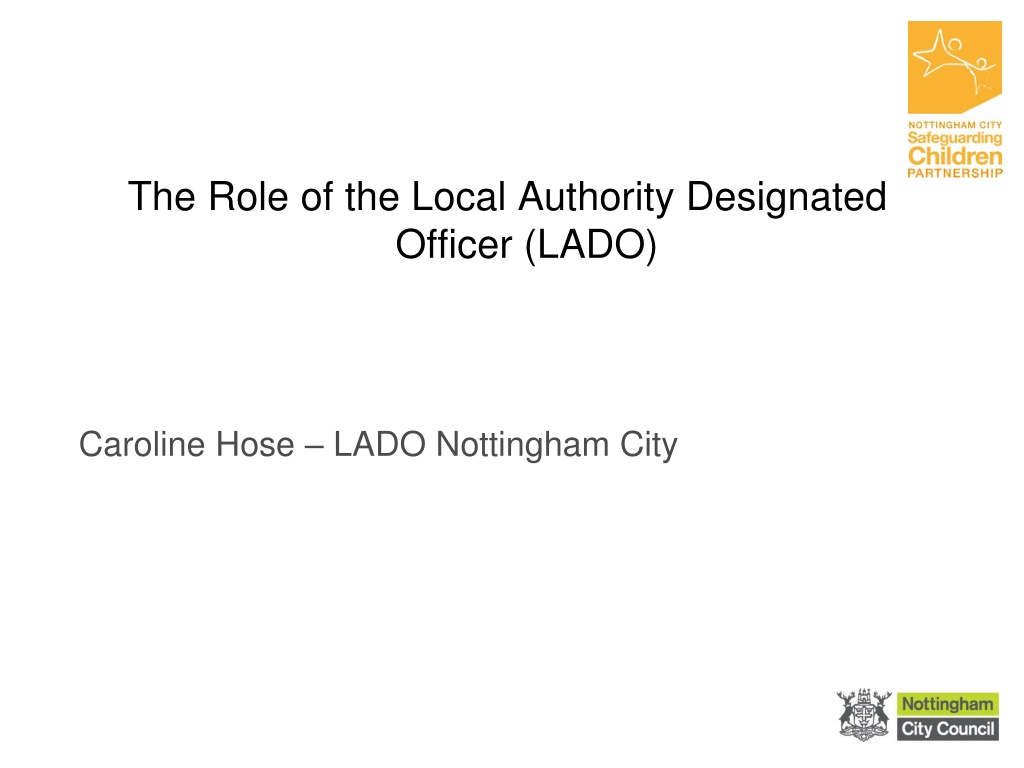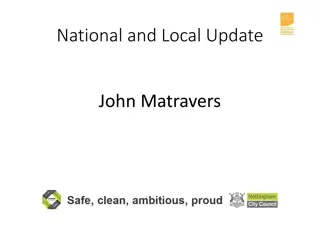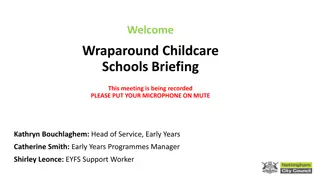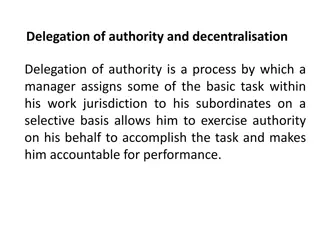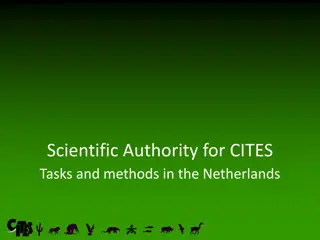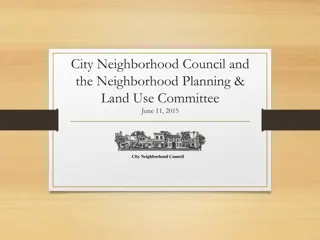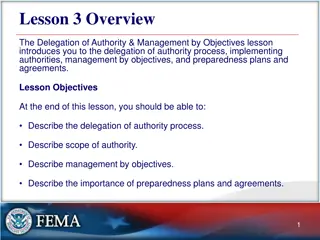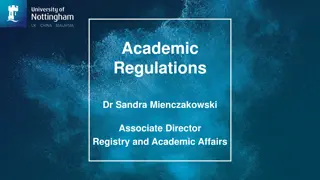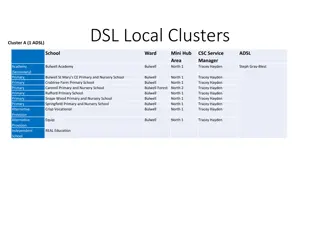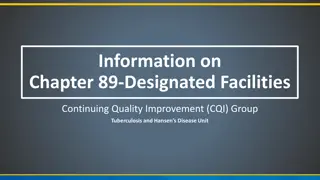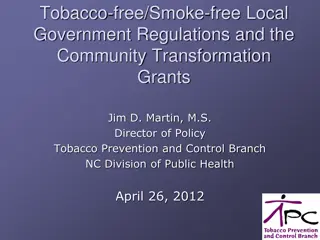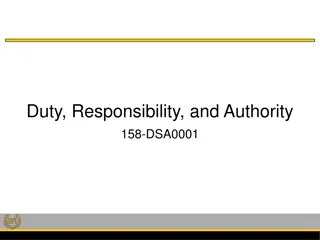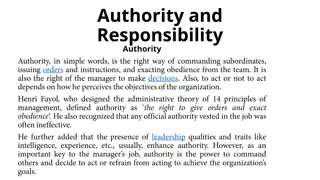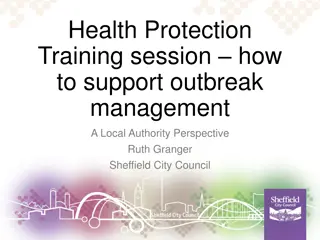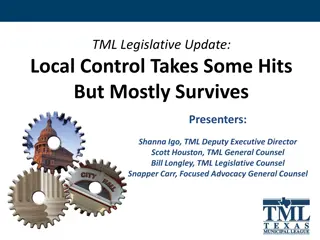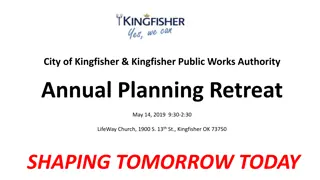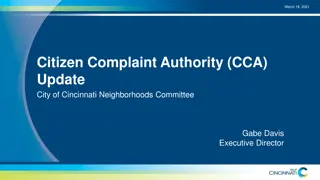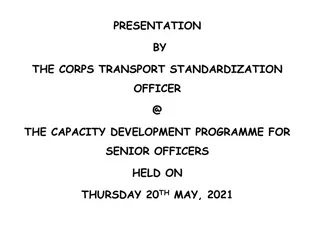Understanding the Role of the Local Authority Designated Officer (LADO) in Nottingham City
Explore the essential role of the Local Authority Designated Officer (LADO) in Nottingham City, responsible for managing allegations and overseeing investigations related to safeguarding children. Learn about LADO criteria, referral processes, and the importance of effective handling of concerns to safeguard children effectively.
Download Presentation

Please find below an Image/Link to download the presentation.
The content on the website is provided AS IS for your information and personal use only. It may not be sold, licensed, or shared on other websites without obtaining consent from the author. Download presentation by click this link. If you encounter any issues during the download, it is possible that the publisher has removed the file from their server.
E N D
Presentation Transcript
The Role of the Local Authority Designated Officer (LADO) Caroline Hose LADO Nottingham City
Aims of the session To have an understanding of allegation and concerns processes in Nottingham City
What is the LADO? The LADO is a statutory role which was introduced within Working Together to Safeguard Children guidance in 2006 following the publication of the Bichard Report into the murders of Holly Wells and Jessica Chapman, murdered by the caretaker Ian Huntley. The Bichard Report cited that agencies such as Children s Services and the Police were not sharing crucial information which was required to safeguard children.
Role of Organisations All organisations that provide services to children, should operate a procedure for handling allegations and concerns that are consistent with: Working Together 2018 Chapter 5 of NCSCP Procedures Section 11 Children Act 2004
Role of the Local Authority Designated Officer (LADO) The LADO works within Children s Services but reports directly to the Local Authority Safeguarding Partnership. The main function of the role is Allegation Management and overseeing investigations, LADOs don t undertake investigations.
LADO arrangements in Nottingham City All referrals to the LADO are to be made by submission of a LADO referral form to LADO@nottinghamcity.gov.uk
Allegations Criteria A LADO referral should be made (within 24 hours of an allegation being made) to all cases in which it is alleged that an adult who works with children has: behaved in a way that has harmed a child, or may have harmed a child possibly committed a criminal offence against or related to a child behaved towards a child or children in a way that indicates they may pose a risk of harm to children behaved or may have behaved in a way that indicates they may not be suitable to work with children (newest criteria introduced in 2020)
Key Principles Who does the procedure apply to? All staff/professional workers paid or unpaid Foster carers/adopters Volunteers When do they apply? In all occasions Non-recent or contemporary or both In what context? In deployment within an agency Personal capacity
Key Principles Continued Allegations and concerns are resolved as soon as possible. Actions and decisions are recorded. The NCSCP oversees the allegations management processes and monitors the effectiveness of local procedures.
Referrals The LADO will review and advise the referrer within one working day if there is a role for the LADO or if it is a matter that can be dealt with under an agencies disciplinary procedures from the outset or wait for outcome from police/social care where applicable. Whether the police and children s social care need to be involved. How and by whom should the parents/carers of a child be informed of allegation if not already aware.
Referrals Continued How, when and by who the member of staff/volunteer concerned should be told about the allegation if not already aware. What support the child and their carer may require. What support the adult subject of the allegation may require. What immediate measures need to be put in place i.e. suspension, restricted duties these are the employer s decision ultimately. Ofsted notification requirements. If an Allegations Management Meeting is to be convened.
Three Strands for Allegations Management There are up to three strands regarding possible next steps that the LADO will advise upon: Police investigation of a possible criminal offence. Children s Social Care enquiries/assessment. Consideration by an employer of safeguarding measures and/or disciplinary action.
Outcome Categories Substantiated: there is sufficient evidence to prove the allegation; Unsubstantiated: insufficient evidence to either prove or disprove the allegation. The term, therefore, does not imply guilt or innocence: Unfounded: there is no evidence or proper basis which supports the allegation being made, or there is evidence to prove that the allegation is untrue. It might also indicate that the person making the allegation misinterpreted the incident or was mistaken about what they saw. Alternatively they may not have been aware of all the circumstances; Malicious: sufficient evidence to disprove the allegation and show that there has been a deliberate act to deceive; False Education sector only: there is sufficient evidence to disprove the allegation.
Potential Outcomes Disciplinary Procedures training, performance plan, verbal or written warning, dismissal Referral to the Disclosure and Barring Service (DBS) Referral to a professional or regulatory body e.g. Teaching Regulation Agency (TRA)
Resignations, settlement or compromise agreements Compromise agreements by which a person agrees to resign; the employer agrees not to pursue disciplinary action and; both parties agree a form of words to be used in any future reference. THESE MUST NOT BE USED IN ALLEGATION AND CONCERNS CASES
Timescales It is reasonable to expect that; 80% of cases will be resolved within 1 month. 90% of cases will be resolved within 3 months. most complex of cases will be resolved within 12 months or more e.g. when there is an ongoing police investigation.
Responding to Allegations/Concerns Always treat them seriously. Record EXACTLY what the concern is. Do NOT discuss the allegation with anyone else. Do NOT investigate without having referred to the LADO.
Reducing risk of allegations or concerns Staff code of conduct, training, behaviour policies and safeguarding policies and procedures in place. Have set personal and professional boundaries for staff. Understand which behaviours need to be addressed directly and when the LADO should be contacted. Safer Working Practices document in place.
Further information LADO@nottinghamcity.gov.uk LADO Referral Form View NCSCP procedures/resources on: www.nottinghamcity.gov.uk/ncscp Any safeguarding concerns about a child need to be referred to City MASH CityMASH@nottinghamcity.gov.uk If you consider a child is at immediate risk of harm, please call the Police on 999
